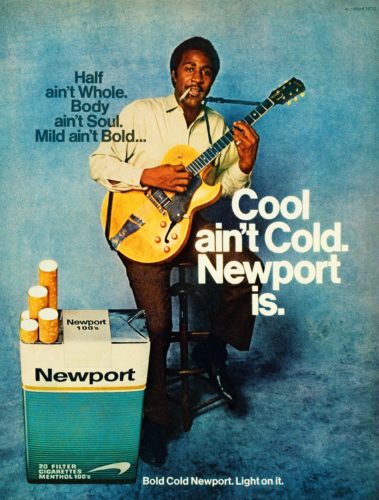Black Media Excluded from U.S. Justice Department’s Anti-Smoking Campaigns
Share
Explore Our Galleries
Breaking News!
Today's news and culture by Black and other reporters in the Black and mainstream media.
Ways to Support ABHM?
By Daisy Jenkins, Huffingtonpost.com

[…] (M)y cousin passed away. He was one of the approximately 45,000 black people who die each year from smoking-related disease, according to The Campaign for Tobacco Free Kids.
If my cousin, on his deathbed, felt compelled to inform black youth about the dangers of smoking, one would think that the U.S. Justice Department, led by U.S. District Judge Gladys Kessler, the Tobacco-Free Action Fund and the country’s four major tobacco companies would have the same revelation. It’s totally inconceivable that on January 17, 2014, these entities chose to exclude the black print or broadcast media from their consent agreement that requires tobacco companies to spend more than $30 to $45 million in advertising as a result of their misrepresentation of the hazards of smoking. The $30 to $45 million will be distributed among the three major networks (ABC, NBC and CBS) as well as full-page newspaper ads and website space in white and Hispanic media. This exclusion of black media is both destructive and disrespectful to the black community; shame on the U.S. Justice Department for being party to the injustice of this odious decision.
The blatantly clear message from this decision is that these leading entities don’t care about the devastating effects of tobacco use in the black community. The irony of it all is that for well over three decades the tobacco industry targeted and heavily exploited the black community to protect a declining consumer base and their profits by increasing smoking among blacks…

[…] Advertisement expenditures in black communities for mentholated cigarettes increased from 13 percent of total ad expenditures in 1998 to 49 percent in 2005.
The advertising was very effective and led to a disproportionately high use of menthol cigarettes by 84 percent of black smokers over the age of 12 compared to 24 and 32 percent for Caucasians and Hispanics, respectively. According to The Campaign for Tobacco Free Kids, mentholated cigarettes could increase the risk of both lung and bronchial cancer more than regular cigarettes and are much more addictive…
It’s now time to use the same targeted advertising through the black media to communicate a different message about tobacco use to the black community: “Smoking Isn’t Cool, It Kills!”…
Read the full article here.
Read more Breaking News here.









Comments Are Welcome
Note: We moderate submissions in order to create a space for meaningful dialogue, a space where museum visitors – adults and youth –– can exchange informed, thoughtful, and relevant comments that add value to our exhibits.
Racial slurs, personal attacks, obscenity, profanity, and SHOUTING do not meet the above standard. Such comments are posted in the exhibit Hateful Speech. Commercial promotions, impersonations, and incoherent comments likewise fail to meet our goals, so will not be posted. Submissions longer than 120 words will be shortened.
See our full Comments Policy here.